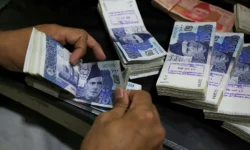Indispensable micro-level reforms

22 January 2024
Published in: DAWN
While national focus on removing macroeconomic imbalances is imperative, it is not enough to build a wide range of competitive industries and economies. Reforms are needed at the micro level, for which the caretaker government has taken some initiatives.
Economic reforms at the national level bring only selective productivity gains at the micro level, says Dr Khakan Hassan Najeeb, a former finance ministry advisor. As evidence suggests, he adds, substantial changes initiated by reforms at the micro level of the economy across corporates, firms, and individuals are indispensable for raising the competitiveness of most industries. They will also require digital infrastructure support from the state.
To quote Caretaker Finance Minister Shamshad Akhtar, inadequate investment in the small- and medium-sized enterprises (SMEs) —globally recognised to enhance the competitiveness of countries and industries and value addition as well as employment generation, has hindered Pakistan’s sustainable growth and development.
Private credit for SMEs in Pakistan has declined to 5.2 per cent from 7.7pc in the last five years. The credit level is significantly lower compared to other South Asian countries with an average of over 17pc. Undoubtedly, she says, they do better on exports and they do better on competitiveness.
Different ventures have been launched to boost smaller businesses and their exports
The SME sector in Pakistan accounts for 90pc of businesses, contributes around 40pc of the GDP and employs around 80pc of the non-agriculture labour force, offering an opportunity to low-income strata.
To facilitate smoother capital investment paths for small businesses, Ms Akhtar recently launched National Credit Guarantee Company Limited (NCGCL) — a joint venture of the Ministry of Finance and Karandaaz — the first of its kind — with an initial investment of Rs6bn.
Easier access to affordable credit facilities will help SMEs underserved by credit to achieve economies of scale, but for that to happen, the taxation system also needs to be rationalised. The Income Tax Ordinance does not provide any specific incentive for newly set up SMEs, while enterprises established in special economic zones are exempt from payment of income tax for 10 years.
No such exemption is available for small industrial estates. A study commissioned by the Small and Medium Enterprises Development Authority (SMEDA) identified compliance with the withholding tax (WHT) regime as the most pressing challenge for SMEs.
Observing that the income tax framework is complex, with multi-tiered incidences of taxation comprising normal income tax, advance tax, withholding tax, minimum tax, corporate tax and final tax, SMEDA official Shaheen Tahir says compliance with such a system is costly, cumbersome and challenging for SMEs.
In yet another first at the micro-level, Caretaker Minister for IT and Telecom Dr Umer Saif launched a start-up fund worth Rs2 billion to attract venture investments to position local start-ups as significant players on the global stage.
The Security and Exchange Commission has proposed amendments to Non-Banking Finance Companies (Establishment and Regulation Rules 2003) to solicit public feedback to promote a more flexible business landscape.
The changes include removing approval processes for the rate of profit on subordinated loans and the subordinated loan repayments. The submission of an undertaking by the company’s promoters or majority shareholders for the sale or transfer of shares is to be waived.
The requirement for furnishing evidence of qualifications and experience for individuals occupying ‘executive positions, research, or other related functions’ within both existing and new companies has also been omitted.
To reshape Pakistan’s trade finance landscape, Dr Shamshad Akhtar formally inaugurated Pakistan’s Export-Import Bank (EXIM) some weeks ago. The move aims to strengthen external trade, attract investments, and foster broader economic growth in the country.
She cited the global impact of similar institutions, noting that they disbursed a substantial $2.5 trillion in trade finance last year, benefiting exports across more than 60 countries. The diverse portfolio of products offered by EXIM provides competitive-rate financing to exporters.
However, industrialists focused on ‘Make-in-Pakistan’ policies lament the denial of free trade policies to all export sectors, now restricted to just five of them. They argue that every country needs diverse export products to meet the ever-changing and fast-growing market.
In fact, enterprising newcomers need to be encouraged in all fields of economic activity to promote balanced development/growth and build an economy capable of producing diversified quality products and services for meeting domestic consumer needs at affordable prices and creating exportable surpluses at globally competitive prices.





